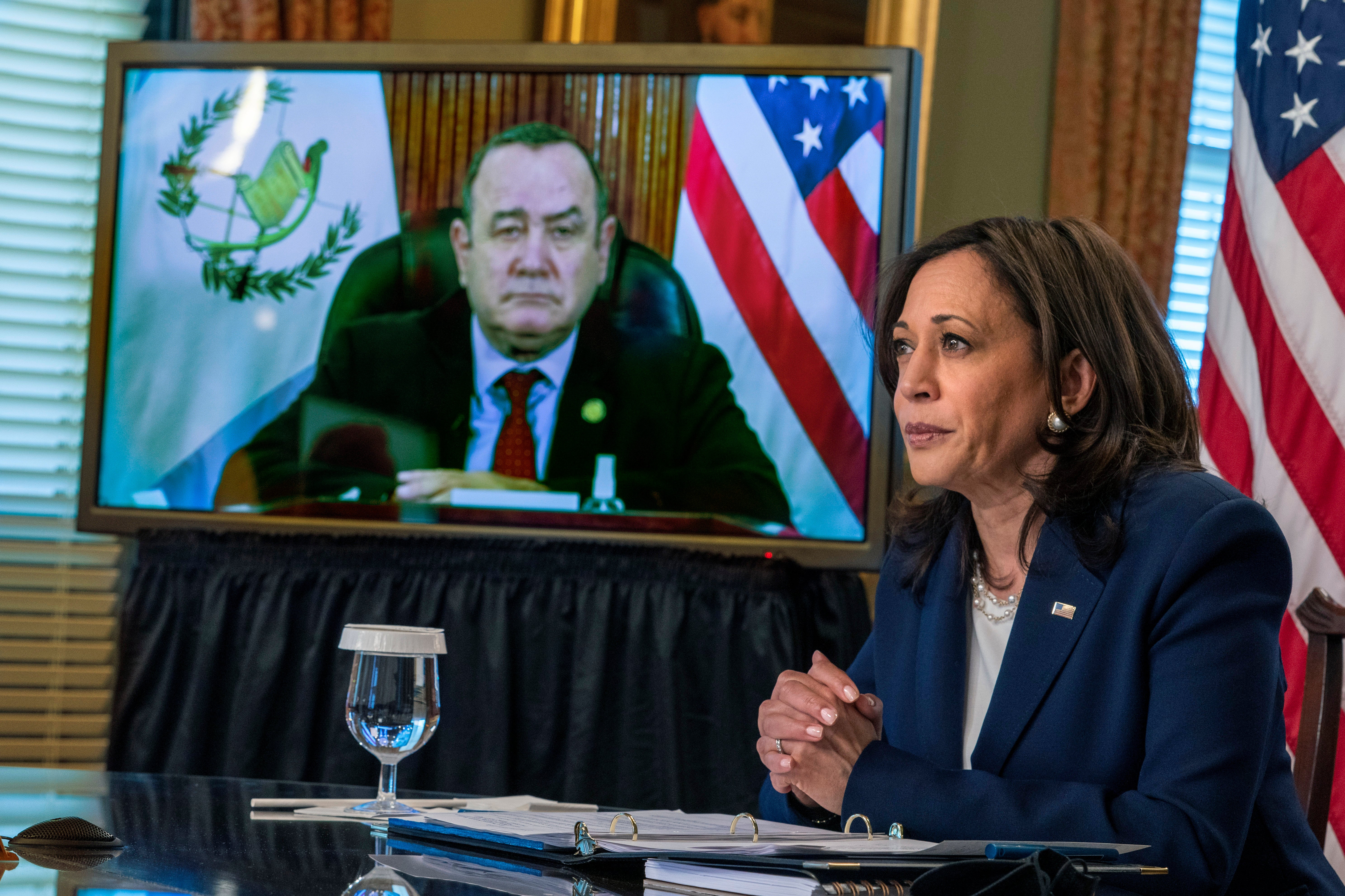Harris meets virtually with Guatemalan president
Vice President Kamala Harris has told Guatemalan President Alejandro Giammattei that the U.S. is planning to increase relief to the Northern Triangle region and “strengthen our cooperation” to better manage the steep increase in migration at the U.S. southern border

Your support helps us to tell the story
From reproductive rights to climate change to Big Tech, The Independent is on the ground when the story is developing. Whether it's investigating the financials of Elon Musk's pro-Trump PAC or producing our latest documentary, 'The A Word', which shines a light on the American women fighting for reproductive rights, we know how important it is to parse out the facts from the messaging.
At such a critical moment in US history, we need reporters on the ground. Your donation allows us to keep sending journalists to speak to both sides of the story.
The Independent is trusted by Americans across the entire political spectrum. And unlike many other quality news outlets, we choose not to lock Americans out of our reporting and analysis with paywalls. We believe quality journalism should be available to everyone, paid for by those who can afford it.
Your support makes all the difference.Vice President Kamala Harris told Guatemalan President Alejandro Giammattei Monday that the U.S. is planning to increase relief to the Northern Triangle region and “strengthen our cooperation” to better manage the steep increase in migration at the U.S. southern border.
Harris made the comments during a virtual meeting with the president that marked a ramping up of her diplomatic efforts to address the root causes of migration from the region, a role she was given by President Joe Biden about a month ago. Harris will also meet with Guatemalan community-based organizations Tuesday, and she has plans to hold a similar virtual meeting with the Mexican president next month, before heading to visit Mexico and Guatemala in June.
The new role has offered Harris both a high-profile challenge to take on and sparked increased criticism from Republicans who have questioned why neither she nor the president have made a trip down to the border to review the situation there. The Border Patrol picked up a record number of unaccompanied children attempting to cross the border in March, and the influx of migrants has put a strain on the federal departments tasked with detaining, housing and processing those migrants.
In her new role, Harris has thus far called both Giammattei and Mexican President Andrés Manuel López Obrador on the phone, and held a number of listening sessions with experts and advocates from the region.
In her opening remarks during the Monday meeting, she spoke about what she described as the “acute causes” of the spike in migration — hurricanes that battered the region last fall, a persistent drought and the COVID-19 pandemic — as well as “root causes,” like the lack of economic opportunity in the region, extreme weather conditions and government corruption.
“We want to work with you to address both the acute causes as well as the root causes, in a way that will bring hope to the people of Guatemala that there will be an opportunity for them if they stay at home,” Harris said.
She promised an increase in aid to countries in the region and efforts to better cooperate to “manage migration in an effective, secure and humane manner.”
Her comments come the same day the Biden administration announced sanctions against one current and one former Guatemalan government official for corruption. In a statement, Secretary of State Antony Blinken said “these sanctions support efforts by the people of Guatemala to end the scourge of corruption, as part of the US government’s commitment to support improvements in governance in Guatemala.”
Neither Harris nor President Giammattei referenced the sanctions in their opening statements, however.
Giammattei told Harris that his country's government would like to be a “partner” to the U.S. to address “not only poverty, but so many evils that affect us.” Between now and their meeting in June, Giammattei said the two should create a “roadmap” between their two governments toward an agreement “to ensure peace, progress and development, and also so that we can secure the cooperation that we need from you.”